Libya: LAICO’s Investments in Africa Reached US$1.2 billion in 21 Countries
Bashir M. Elmadani, Managing Director of Libyan African Investment Company (LAICO)
LAICO at the present is well-known in Africa, because we are participating in over 21 countries in Africa. Our investments are mainly in the real estate and tourism sectors. The total of our current investments is approximately US $1.2 billion.
Interview with Bashir M. Elmadani, Managing Director of Libyan African Investment Company (LAICO)
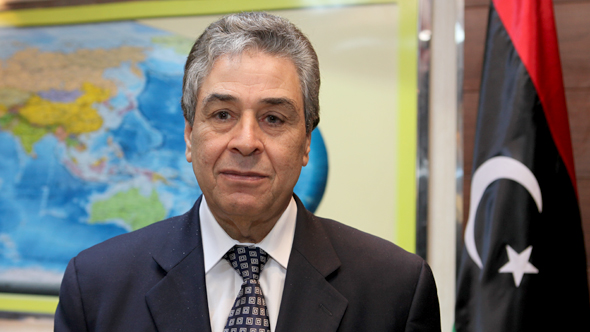
In your opinion, what is the correct position for Libya in regional and international geo-economical or geopolitical terms?
If we look at the location of Libya. it is on the Mediterranean, in the middle of Africa, facing Europe and Asia. Therefore Libya can play a very important role as a connecting channel between Europe, Asia and Africa, particularly in terms of transporting technology from the West to Africa, by having free zones to transit technological or conventional goods from Europe and Asia to Africa. This will develop Africa in many ways. Libya is a part of Africa, and with its location in the north, it is easy for Libya to play an important role in Africa.
LAICO at the present is well-known in Africa, because we are participating in over 21 countries in Africa. Our investments are mainly in the real estate and tourism sectors. The total of our current investments is approximately US $1.2 billion.
Would you say it is better positioned than Morocco or Egypt?
I think so because it is positioned in the middle: from here you can gateway to the east, west or south. The central location is more suitable and Libya can play a better role.
There are a lot of misconceptions about Libya. This is a country coming out of a civil war, out of a socialist regime, a country sitting on the largest oil reserves in Africa. What would you say to international readers regarding aspects that they may not be aware of?
Libya is different from any other country; we are very united society with strong social cohesion. We don’t have not had any political parties like other countries. We have a very cohesive society. We don’t have a west, east or south division, everyone is a Libyan in the same way, Libyans follow the same religion, have the same habits and many families have relatives spread all over the country. The stability of this society is the advantage of this country. The transition period in Libya has been more successful than in any other country. We are one community.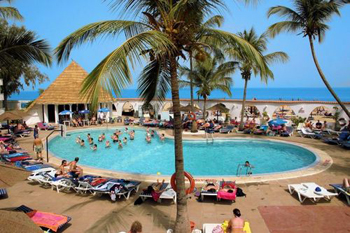
Let’s look at LAICO, can you tell us about your investments in Africa? Your philosophy is not based just on profits, it’s about developing a win-win situation that puts the revenue aside for future generations of Libya and, at the same time, LAICO aims to develop economically and socially the countries that you are representing. Can you share with us your investment philosophy?
Our investment philosophy is that, first of all, we have to work as investors, we have to create some income from our investments for the new generations in Libya, and this is our main objective. The second goal is to participate in the development of the African countries. Libya is a part of Africa so we have to participate in developing this region. We have to help Africa use its resources and promote its activities, we have to help countries do business in this part of the world in order to bring in the technology and we have to get good investment returns on the investments in Africa.
Can you tell us the number of countries that you represent, and what is the volume of your investments?
LAICO at the present is well-known in Africa, because we are participating in over 21 countries in Africa. Our investments are mainly in the real estate and tourism sectors. The total of our current investments is approximately US $1.2 billion.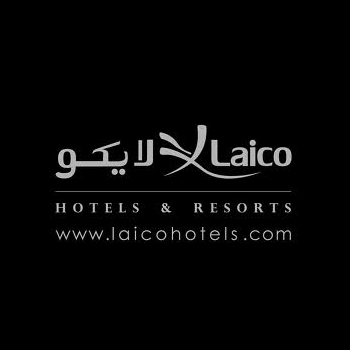
How much of an economic effect are you making on Africa? It is indeed very difficult to quantify an economic effect, but what about the direct and indirect effects of your presence in these countries?
If you take the number of employees in the countries where we have an investment, we actually participate in the social employment of these countries. It is our investment and money, but these countries get a lot of benefits because it is their location. These countries benefit in many ways, for example from certain tax benefits on the services, employment, the improvement of their economy etc. We try to participate in the development by doing what the African governments themselves would like to do in their own countries.
What is your investment strategy? Does it depend on the situation or do you invest and sell when the investments reach their value and then reinvest the profits in Africa or do the profits go to the Ministry of Finance of Libya?
Well, you are familiar with the mentality of investors! Every day they are thinking about their investments, how to invest, find and invest in a good opportunity , or find the opportunity to sell and invest somewhere else or in another location to increase their investment for the benefit of the investors themselves. Our strategy is to depend on the viability of the project itself. Before we start any investments we have to evaluate the viability of the project or investment and carry out a feasibility study. We work with the top four advisory firms to find good business opportunities. our decisions will be made based on the results of these studies all over Africa. Moving any investment from one location to another or from one business to another depends entirely on the viability study.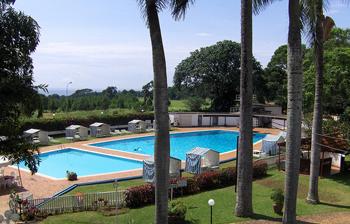
Therefore you are also investing to get cash flow and to get capital appreciation depending on the situation.
Our strategy is to increase our investment from time to time and to create more investments. We are not looking for a cash distribution of the returns right now; we are looking to increase the base value for the investment for the new generations. This is our goal.
Obviously there are a lot of changes happening all over Libya as a result of the revolution and the fall of Gaddafi’s regime. How have these events affected your operations?
LAICO has not really felt a great effect from that because what we have in Africa is a good ownership. We have our certificate of ownership. We manage our projects by ourselves as a company. We were not greatly affected. At the beginning of 2011 we were away from our investments, some countries put their management teams to manage the investments because of the United Nations sanctions, but this was ok because we have Libyan managers in our participations in Africa, and the countries themselves helped us a lot to protect our investments and to keep them away from any interference, especially in terms of cash in banks or transfers for example.
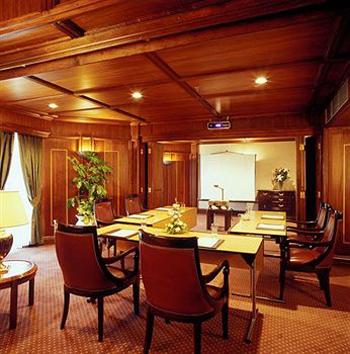 Do you feel that because of the regime change in Libya, with all the damage from the civil war, the people in Libya are looking at these investments funds that are very active investing abroad, and wondering why they are investing abroad when they need investment at home? Do you feel pressure from the people inside Libya to retract the investment abroad and to invest in Libya?
Do you feel that because of the regime change in Libya, with all the damage from the civil war, the people in Libya are looking at these investments funds that are very active investing abroad, and wondering why they are investing abroad when they need investment at home? Do you feel pressure from the people inside Libya to retract the investment abroad and to invest in Libya?
In my opinion, investment abroad doesn’t mean that we don’t invest in Libya. I mean every sector has its duties. LAICO’s duty is to invest in Africa in the real estate and tourism. Our goal is to build an investment that will be a very good asset for the new generations of Libya, which doesn’t mean that we aren’t investing in Libya, because if we increase our assets in Africa, someday it could be a substitute for our oil and gas income for example. We have to build our investment abroad. It doesn’t mean that the other companies that sponsor investments in Libya are not investing in Libya, they are investing. However, this is not our duty.
What are the returns on assets that you have been experiencing over the past two years?
The revolution in Libya obviously affected the profitability of our investments abroad, especially when the United Nations froze Libyan assets. Most of our participation was stopped in 2011 and even joint ventures were affected. Nevertheless, if we look at the investments in real estate, the appreciation is very high and this is what we are concentrating on. In the future we are going to evaluate most if not all of our investments in Africa and we have to make sure that those investments have good returns or we will have to replace them with a good investment opportunity to generate better income.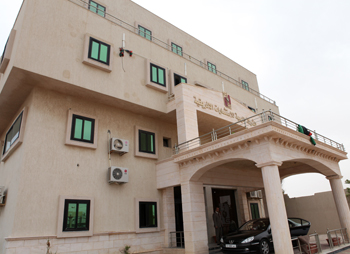
Do you have any figures for your profit targets for 2013 and 2014?
I think we are not going to accept less than 15%. This is the minimum. I know that the hotel sector is profitable and can generate 20 – 25% of net profit, but because the capital expenditure was too high in the old regime there is an over cost of the construction on the investments and therefore the returns will be lower.
What was the case before 2011?
Before 2011 it was different. Most of the projects were under construction and the capital expenditure on those investments was high. Also the management was not satisfactory and thus it was not a good measure.